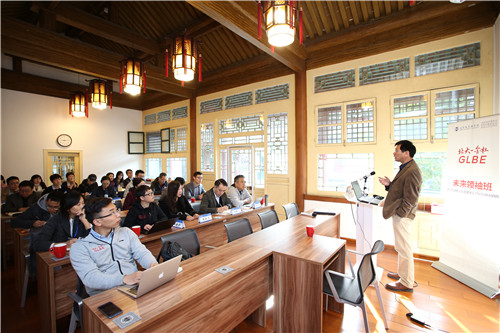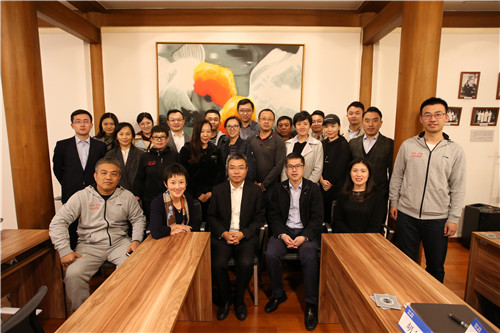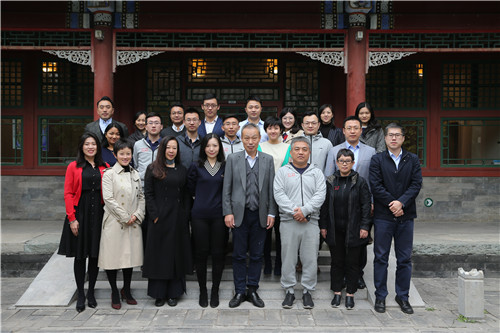The “National Governance and Globalization” module of Peking University and King & Wood Mallesons’s Future Leadership Program was successfully concluded
Date:2018-11-19
On October 20th-21st, the PKU-KWM Global Legal and Business Executive Program (hereinafter referred to as “GLBE”) Future Leadership Program, the first module of “National Governance and Globalization” was successfully concluded. Yu Keping, Huang Tao and Zhu Suli’s wonderful lectures led the students to re-examine the global governance background from the perspectives of political, economic and institutional evolution. To explore China around institutional values, commercial strength and traditional wisdom and to discuss the path of national governance and globalization, which is deeply integrated with the model and international experience, lays a discourse background and vision for the curriculum structure.
Stand at a new starting point and buckle the "first button". Professor Yu Keping, Dean of the School of Government Administration of Peking University, brought the first lesson of the school to promote the modernization of state governance. Starting from the reasons for China's achievements and progress since the reform and opening up, Teacher Yu proposed that "China's political reform is mainly state governance" in light of the evaluation criteria of Western political reform. Immigration, ecological civilization, urban management dilemma... The hot topics that are closely related to everyone's life confirm the different results of public governance. "The modernization of the national governance system and governance capacity" is the goal pursued by China's public governance. From a global perspective, moving from governance to governance is also a general trend in human political development. From the five levels of authoritative subject, authoritative nature, authoritative source, power operation degree and scope of action, Teacher Yu elaborated on the transcendence of “governance” to “ruling” and realized the greatest public interest in governance process and governance activities is the proper meaning of "good governance."
Finally, looking at the characteristics, advantages and challenges of China's governance model, Teacher Yu stressed: further emancipating the mind, breaking the concept of official position, summing up the results of local governance reform and innovation, and carrying forward the experience of traditional Chinese governance, can truly realize the modernization of state governance.
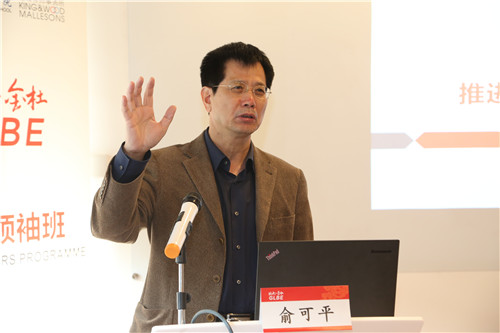
Global governance requires not only Chinese programs, but also corporate intelligence. Lawyer Huang Tao, a partner of King & Wood Mallesons, shared the dispute resolution solution under economic globalization. He first introduced the common risks that caused controversy: political risk, legal risk, financial risk, credit risk, and market risk. He pointed out that it is necessary to prevent risks, predict risks and control risks in transnational business wars, and win this war without smoke. With many years of practical experience and refinement, Mr. Huang and his students shared a large number of real cases of cross-border dispute resolution, and provided corresponding settlement rules for three different types of international disputes. In the face of disputes between commercial entities, litigation pursues justice, arbitration focuses on efficiency, and parties should choose according to the nature of disputes and interests. In the face of disputes between commercial entities and foreign governments, whether it is the administration of “transnational public officials” Litigation, or investment arbitration, we can not ignore the impact of the away game; in the face of inter-governmental business war, the procedures and deficiencies in understanding the WTO dispute settlement mechanism are of great significance. Mr. Huang reminds everyone that cross-border dispute resolution is a “family routine” under economic globalization. Chinese companies must actively adjust their mentality, correctly treat litigation, and face controversy in order to grasp the initiative. He further pointed out that future leaders must not only abide by and use the rules, but should also assume the responsibility of formulating and modifying rules.
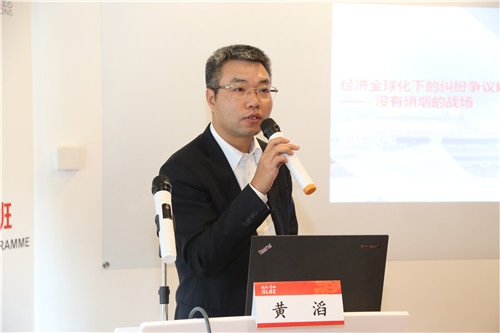
" Taking history as a mirror, we can know the advantages and disadvantages, and we can use a human mirror to understand the gains and losses." Professor Zhu Suli, a professor at Peking University Law School, advocates breaking through the "paper problems" and refining intellectual resources from historical experience. Understand the world and gain insight into the inner relationship between problems and things that seem to be irrelevant. Teacher Zhu re-constructed the concept of “home-state-world”, which is closely related to the institutional construction of the historical Chinese political civilization community. "Home" refers to the traditional grassroots organizational construction and order maintenance unit represented by the family or clan. “Country” refers to a unified political civilization composed of countless farming villages, mainly through a series of political, economic, cultural, and military systems, including county and county system, talent selection and appointment, unified weights and measures, books and slang, and infrastructure construction. The measure is to make the country a country with the enthusiasm of the political elite group. "The world" refers to the frontier areas of the nomadic culture around the Central Plains farming area, and implements autonomous policies such as the policy of defamation. The spillover effects of the unique economic production methods of the nomadic people and the survival crisis brought about by the natural conditions such as the flooding of the Yellow River have made people living in this land establish, develop and shape the basic system of historical China, thus forming the history of China. Constitutional." "In order to survive," the basic needs of this strong and unbreakable person are the most powerful ties to maintain China.
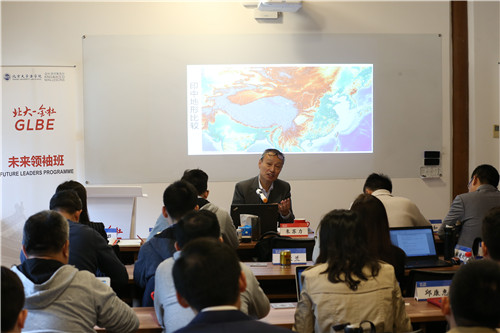
The first module of the course quickly ended in the blend of ancient and modern and the Sino-Western collision. As Song’s agent Zhu Xi said, “The more you know, the more you walk: the more you walk, the better you know.” In the GLBE class, we reshape our minds and clarify our direction; in actual work. We are all in practice and determined to move forward; learning to be mutually enterprising, knowing and doing.
